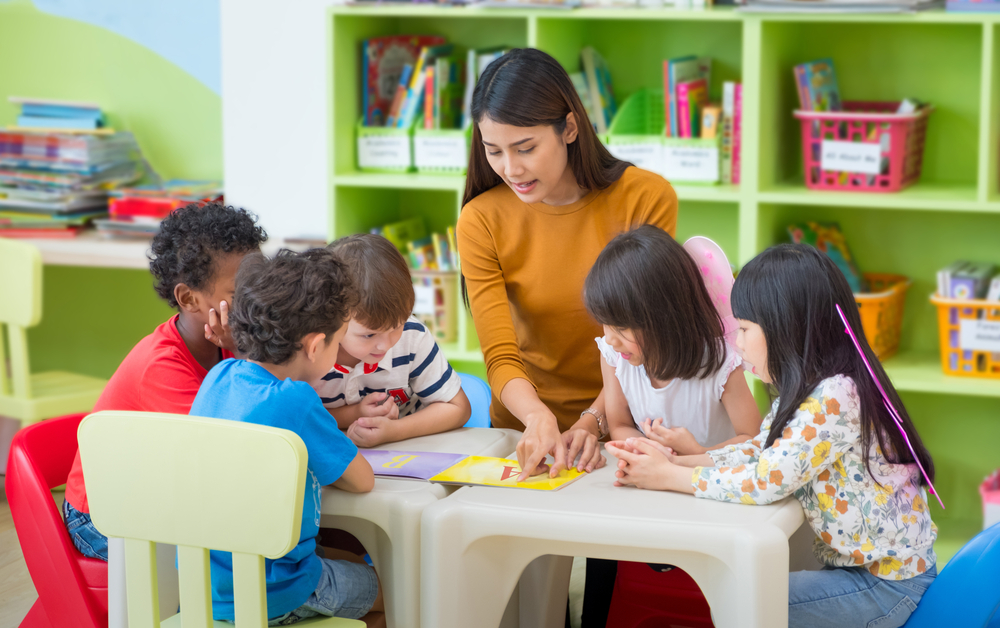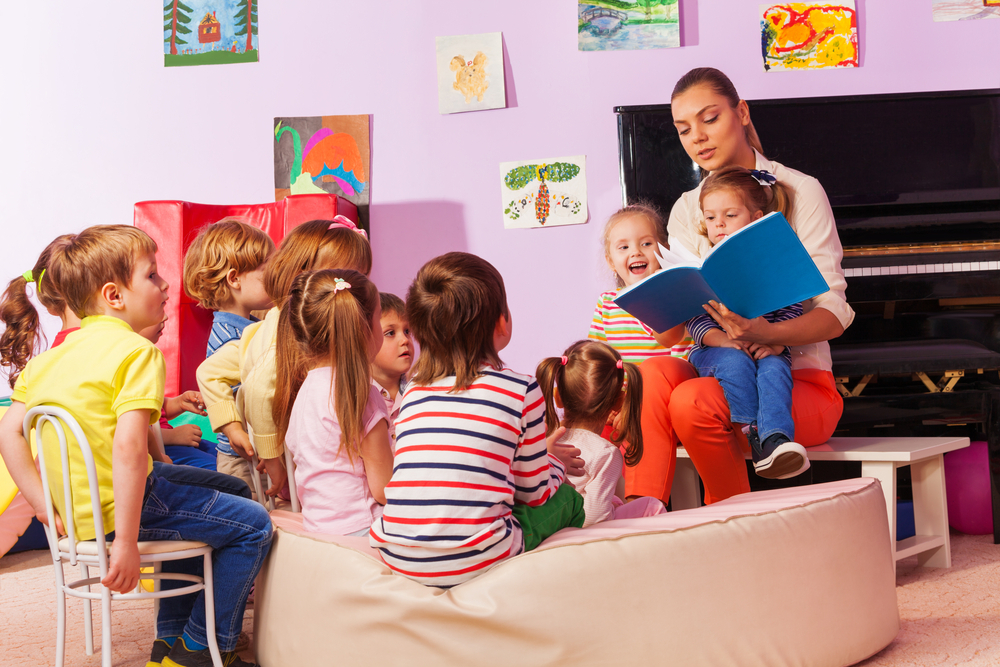
Helping kindergarteners develop reading skills is fundamental to their educational growth and overall success in school. Establishing a solid reading foundation at this developmental stage can foster a lifelong love for reading and learning. This comprehensive guide will delve into effective strategies and resources to support young readers.
Understanding Kindergarteners’ Reading Abilities
Before we can assist kindergarteners with reading, it’s essential to comprehend their typical reading abilities. At this age, children are usually transitioning from pre-reading stages to beginning to read simple words and sentences. Key indicators of reading readiness include:
- Recognizing letters and corresponding sounds
- Understanding concepts of print such as left-to-right directionality
- Recalling familiar words and phrases from memorized stories
- Demonstrating an interest in books and storytelling
Helping kindergarteners read is not just about teaching them to decode words; it’s about sparking an interest in the world of books and providing them with the tools to understand and enjoy it. By fostering a love for reading at an early age, we are setting children on a path to lifetime literacy and academic achievement.
Understanding the Importance of Early Reading Skills
Delving into early childhood education, it’s crucial to comprehend the significance of foundational reading skills. For kindergarteners, mastering these skills is the first step on a journey of academic and personal growth. Understanding how to help kindergarteners read effectively involves recognizing the multi-faceted benefits of early reading proficiency.
1. Cognitive Development and Reading
Early reading experiences contribute vastly to the cognitive development of young children. By engaging with text, kindergarteners enhance their brain’s capacity to process information, to comprehend language structure, and to develop critical thinking skills.
Language Skills: Early reading helps children develop a richer vocabulary and a better understanding of language nuances, including grammar and sentence construction.
Attention and Memory: Frequent reading activities can improve a child’s attention span and memory. With each story, children learn to remember characters, plots, and the sequence of events, which reinforces their short-term and long-term memory capabilities.
2. Academic Achievement Predictor
Research shows that early reading ability is a strong predictor of later academic success. Children who have developed solid reading skills by kindergarten often perform better across all subject areas.
Literacy Foundation: Reading skills lay the groundwork for literacy in other areas such as writing and communication.
Performance in Other Subjects: Because reading is integral to learning in subjects like science and social studies, early proficiency can contribute to better comprehension and achievement in these areas as well.
3. Social and Emotional Benefits
Reading isn’t just an academic skill—it’s also a conduit for social and emotional learning.
Empathy and Understanding: Through stories, children learn about diverse lives and experiences, which helps cultivate empathy and an understanding of different perspectives.
Self-confidence: As children learn to read, they develop a sense of independence and self-confidence. They take pride in their ability to navigate books and understand stories on their own.
4. Lifelong Impact
The habits formed in kindergarten can last a lifetime, so instilling a love for reading at this early age can have long-term benefits.
Love for Learning: Children who enjoy reading are often curious and motivated learners, not just in school but throughout life.
Career and Personal Success: Advanced reading skills can lead to better job opportunities and a greater ability to engage with complex material in personal and professional contexts.
Understanding how to help kindergarteners read is about more than just teaching them the mechanics of reading. It’s about nurturing a comprehensive set of skills that will serve them for the rest of their lives. By focusing on the cognitive, academic, social, emotional, and lifelong benefits of early reading proficiency, caregivers and educators can make a significant positive impact on the trajectories of young learners.

Assessing Your Kindergartener’s Reading Readiness
Understanding whether your kindergartener is ready to start reading is a crucial step in their educational journey. Reading readiness refers to the point at which a child shifts from the pre-reading stage into being able to learn to read with instruction. This readiness is about more than just knowing the alphabet—it encompasses a variety of skills and milestones.
Key Indicators of Reading Readiness
When evaluating if your kindergartener is ready to begin reading, consider the following indicators:
Letter Knowledge: Recognizing the letters of the alphabet and knowing their names is fundamental. Your child should also begin associating letters with their sounds.
Phonemic Awareness: This is the ability to hear and manipulate the individual sounds in words. It involves skills such as rhyming and recognizing the first sound in a word.
Print Awareness: Your child should understand how to handle a book, where the text begins on a page, and the notion of words representing spoken language.
Listening Comprehension: The ability to listen to stories and understand them is a precursor to reading comprehension. Pay attention to your child’s ability to discuss the story and answer questions about it.
Vocabulary: A robust vocabulary aids reading. Children who have been exposed to a wide range of words in conversation and storytelling are often more ready to read.
Motivation to Read: Showing interest in books, asking to be read to, and pretending to read are all signs that a child is developing a desire to read.
Activities to Gauge Reading Readiness
To more accurately assess your kindergartener’s readiness, you can engage in simple activities:
Letter Recognition Games: Use flashcards or alphabet puzzles to see if your child can name the letters and match them with their sounds.
Rhyme Time: Play rhyming games to test phonemic awareness. Can your child think of words that rhyme with ‘cat,’ ‘dog,’ or ‘bee’?
Story Discussions: After reading a story, ask your child questions about the characters and plot. Can they retell the story in their own words?
Word Hunts: While reading a story or seeing text in the environment, ask your child to find a specific word. This reinforces print awareness.
Creating a Supportive Environment for Assessing Readiness
To make the assessment process positive and stress-free, try the following:
Normalize Mistakes: Let your child know that mistakes are a normal part of learning.
Cultivate Patience: Be patient with their pace of learning and avoid comparing them to siblings or peers.
Praise Effort: Celebrate the effort they put into learning activities, regardless of the outcome.
The goal is to create a supportive atmosphere that encourages the natural development of reading skills. With the right approach, you can help determine if your kindergartener is ready to embark on their reading adventure and provide them with the necessary support to succeed.
Engaging Books to Spark a Kindergartener’s Interest
Selecting the right books to captivate a kindergartener’s imagination and curiosity can play a pivotal role in nurturing a love for reading. The types of books presented to young learners at this tender age should not only entertain but also engage them in a manner that subtly enhances their literacy skills.
Criteria for Choosing Engaging Books
Before diving into specific book recommendations, it’s crucial to understand what makes a book appealing to a kindergarten-aged child:
Bright and Vivacious Illustrations: Books with colorful and vivid artwork can capture a child’s attention and stimulate their visual senses, which is an integral part of the engagement process.
Interactive Elements: Books with flaps to lift, textures to touch, or parts that create sounds make reading a multi-sensory experience and keep young readers intrigued.
Repetitive and Rhythmic Text: Stories with predictable patterns, refrains, and rhymes make it easier for children to follow along and begin recognizing common words and phrases.
Relatable Characters and Situations: Books with characters facing challenges similar to those a kindergartener might experience can foster a connection and encourage empathy.
Humor and Fun: Laughter is a universal key to enjoyment. Books that can induce giggles can also encourage children to associate reading with joy.
Educational Value: Books that introduce basic concepts such as numbers, letters, shapes, and colors in a story form can be both enjoyable and informative.
Recommended Engaging Books for Kindergarteners
Here are some notable books that have been praised for their ability to engage kindergarteners:
- “The Very Hungry Caterpillar” by Eric Carle: This classic book combines simple text with bright collage illustrations, teaching days of the week, counting, and the life cycle of a butterfly.
- “Brown Bear, Brown Bear, What Do You See?” by Bill Martin Jr. and Eric Carle: With its repetitive text and vivid artwork, this beloved tale introduces children to colors and animals, making it a delightful read-aloud.
- “Where the Wild Things Are” by Maurice Sendak: A story of adventure and imagination, this book draws in young readers with its captivating narrative and expressive illustrations.
- “Chicka Chicka Boom Boom” by Bill Martin Jr. and John Archambault: This alphabet rhyme seduces young readers with its energetic text and bold, colorful images.
- “Don’t Let the Pigeon Drive the Bus!” by Mo Willems: With its unique interactive style, this book invites children to participate in the story, heightening their engagement and creativity.
- “The Snowy Day” by Ezra Jack Keats: This Caldecott Medal winner captures a child’s wonder and discovery with simple text and charming illustrations that speak to the experiences of the very young.
- “Goodnight Moon” by Margaret Wise Brown: The gentle, lulling rhythms of this bedtime story paired with its soft, tranquil illustrations offer a soothing transition to sleep, which can be comforting for young readers.
To further increase a kindergartener’s interest, consider activities that extend the reading experience. Encourage children to create artwork based on the book’s themes. Engage in dramatic play. Act out stories or parts of books to make the narrative come alive. Finally, draw the events of the book in a sequential order to practice comprehension.
Regularly introducing new books can keep the reading corner fresh and exciting.
While traditional methods are valuable, technology can also support literacy development:
Educational Apps: Use apps that provide immediate feedback and can be adjusted to different levels.
Interactive E-Books: Select e-books that offer interactive features such as highlighted text that reads aloud or has words that provide definitions.
Reading activities for kindergarteners should always be tailored to their developmental level and personal interests. These activities are not only meant to enhance literacy skills but also to foster a positive attitude toward reading. By integrating fun into the learning process, we nurture a generation of eager and capable readers.

Unlock the World of Words for Your Kindergartener with Readability Tutor
With Readability Tutor, your kindergartener can embark on an adventure of letters and sounds that will lay the foundation for a lifetime of learning.
Our award-winning app is the perfect partner for nurturing your young reader’s potential. With Readability, your child will experience the joy of improving their reading abilities through real-time feedback from our interactive voice-based AI tutor.
Our Storytime feature can get your kindergartener started by listening to stories. As their ability to read evolves, you can challenge them to read on their own. Readability presents your child with new words, meanings, and pronunciations just when they need them. Our app ensures they remain engaged and advancing as they grow with new challenges that match their reading level.
Are you ready to support your kindergartener in becoming a proficient and enthusiastic reader? Start their reading adventure with Readability Tutor today and witness the magic of words come to life.

 Español
Español